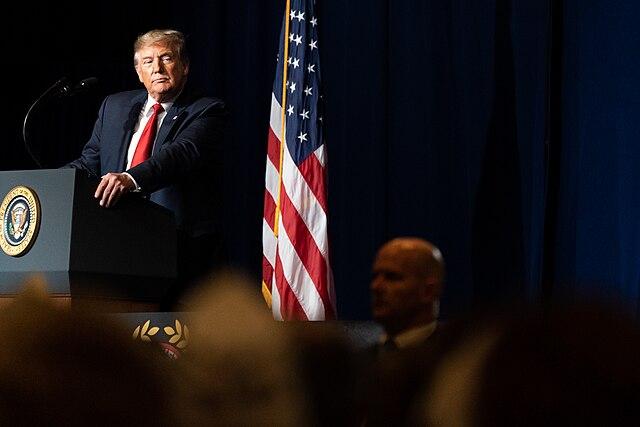The quest for fairness in Trump's trial jury selection
The integrity of the American judicial system, predicated on the principle of a fair trial by an impartial jury, faces a monumental test in the upcoming hush-money trial of former President Donald Trump. As Judge Juan Merchan lays out the jury selection questionnaire, probing potential jurors on their political affiliations, rally attendances, and views on Trump, the challenge of assembling an unbiased jury in Manhattan—or anywhere, for that matter—becomes glaringly evident.
The questionnaire, as reported, delves into whether prospective jurors have participated in Trump’s rallies, are members of politically charged groups like the Proud Boys or Antifa, or have engaged with political entities associated with Trump. Such questions are undoubtedly crucial in filtering out bias. However, they inadvertently spotlight a broader issue: the polarized lens through which much of the public views Trump, making the task of finding unbiased jurors Herculean.
Trump supporters, known for their unwavering loyalty, might openly acknowledge their attendance at his rallies, a mark of pride for many. Conversely, the same transparency cannot be anticipated from individuals who have participated in Antifa rallies, often shrouded in anonymity and, at times, associated with illegal activities. This discrepancy in transparency could skew the jury selection process, inadvertently favoring one side over the other.
Moreover, the questionnaire asks jurors if they harbor strong opinions about Trump or his legal entanglements that could hinder their impartiality. In today’s deeply divided America, where opinions on Trump are seldom mild, this inquiry alone could disqualify a significant portion of the jury pool, further complicating the selection process.
The essence of these concerns transcends this individual trial, touching upon the broader debate over whether Trump can receive a fair trial anywhere in the United States. The polarization he embodies has seeped deep into the fabric of American society, casting a long shadow over the jury selection process. Critics argue that the media’s portrayal of Trump has been overwhelmingly negative, possibly prejudicing potential jurors against him even before they step into the courtroom.
In response to the challenges of ensuring a fair trial, some conservatives, including prominent leaders and commentators, have voiced apprehensions about the trial’s location and the jury selection process. They fear that the deck is stacked against Trump, with the trial venue in Manhattan and the nature of the jury questions potentially alienating unbiased or sympathetic jurors.
As we move forward, the judiciary’s handling of this high-profile case will be a litmus test for America’s commitment to the principle of impartial justice. The trial is not just about Trump; it’s about whether the American judicial system can rise above partisanship and ensure a fair trial, even for figures as divisive as the former president. The outcome will resonate far beyond the courtroom, influencing public trust in judicial processes and the perception of American governance itself.
The saga of legal challenges faced by Trump prompts a serious reflection on the need for legal reforms or protections that safeguard individuals from an incessant barrage of accusations. From the allegations of Russian collusion and the extensive Mueller probe to a continuous series of investigations, one must ponder the mechanisms that should be in place to prevent an unending parade of charges, especially when many are later deemed unfounded. This scenario raises profound questions about the protections needed to ensure that accusations, particularly those politically motivated, do not perpetually besiege individuals, thereby undermining the very essence of justice and fairness in our legal system.

Melody Jennings, a seasoned authority in deciphering psychological operations targeting Americans, inspires through her journey. With insightful books, engaging podcasts, and enlightening articles, she equips others to recognize and navigate mind traps, empowering them to emerge unscathed from psychological warfare.
Image: Public domain.
Ad Free / Commenting Login
FOLLOW US ON
Recent Articles
- From Churchill to Vance...Sounding Off About Tyranny
- Globalist Games: They Play, We Pay
- Scorched-Earth Disease Control
- NATO, Ukraine, and the War Hawks’ Pixie Dust Playbook
- On XY in XX’s Sports, Whoopi G. Opens Her Mouth—and Removes All Doubt
- Donald Trump’s Return: A Foreign Policy Reset After Biden’s Weakness
- The Danes and the Greenlanders: How They See Trump's America
- The USAID Case: Judge Amir Ali’s $2 Billion Defiance Escalates
- Terrifying Tariffs: Tax Policy as Back-Door Foreign Aid
- Dr. Marty Makary’s ‘Blind Spots’ Book Is At Odds With Established Findings
Blog Posts
- Schumer caves on shutdown after Dem private lunch erupted in a shouting match
- It's amendment-decorating season in Oregon
- UN climate change conference to be held in Amazon rainforest, trees sacrificed
- I’m all broken up about Mahmoud Khalil’s rights
- Destuction's defenders
- Go away, Randi
- After blowing $9 billion on 'free' health care for illegals, California's Gov. Gavin Newsom asks for a bailout
- Trump throws down the gauntlet to the out-of-control federal district court judges *UPDATED*
- Ronald Reagan also had a slow economic start
- Getting the left out of the political wilderness
- Oregon selects a trans-turtle and a trans-meteor to sit on a ‘mental health advisory board’
- Fly the DEI skies...and hope that you land safely
- This 70-year-old woman is serving 9 years in prison
- Stacey Abrams really, really, wants 'her' $2 billion from Biden's EPA slush fund
- The (un)masked magician’s apprentice






